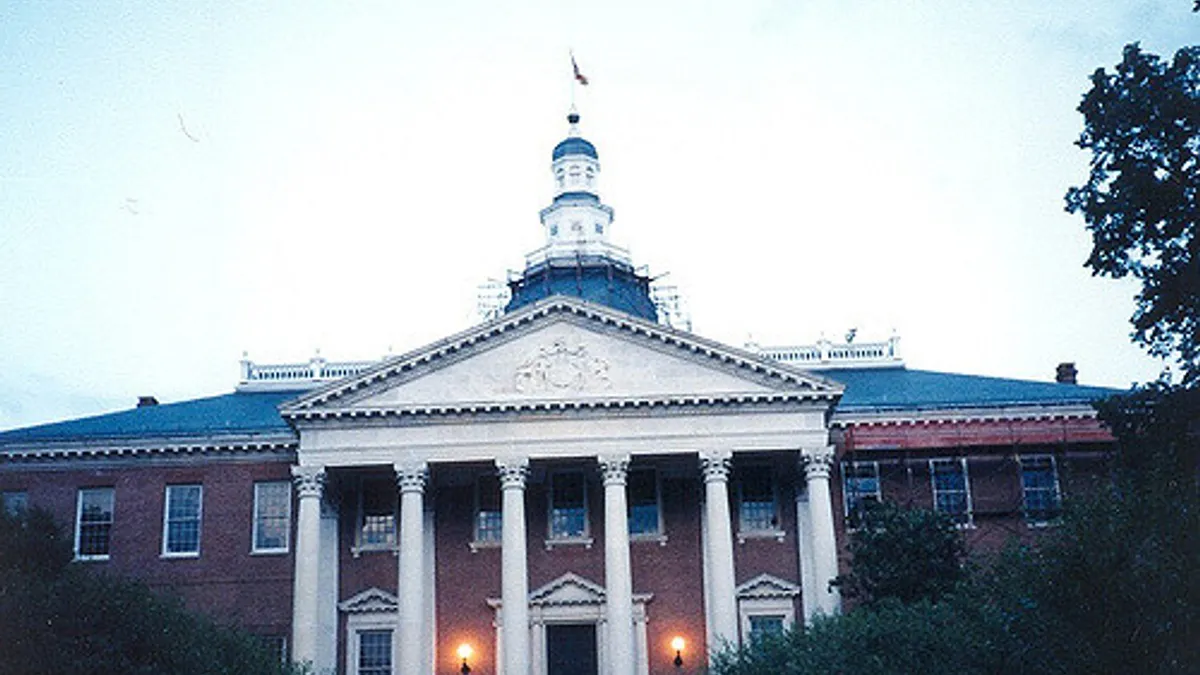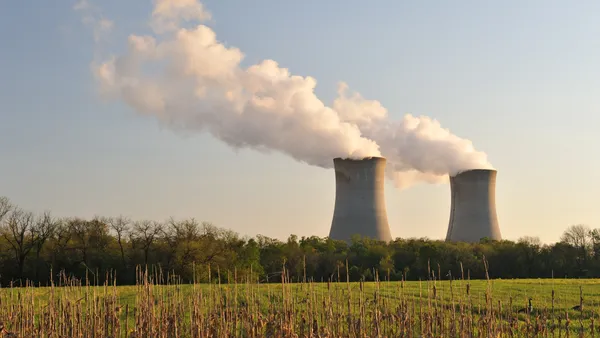Dive Brief:
-
Maryland’s General Assembly has passed a bill that calls for a 30% tax credit for the deployment of energy storage technologies that runs from 2018 through 2022.
-
The credit is capped at $5,000 for residential storage projects and at $75,000 for commercial projects with an overall cap on credits awarded of $750,000 per year.
- The bill now goes to Gov. Larry Hogan (R), but it seems to have garnered enough votes – passing unanimously in the Senate and by 101-11 votes in the House – to avoid or survive a veto.
Dive Insight:
Gov. Hogan has been an advocate of holding down government spending and a reluctant participant in expanding state programs for energy efficiency and raising renewable energy targets.
But for states like his aiming to expand renewables and hold down costs, a storage tax credit could be a more palatable option than an outright mandate, as being developed in Massachusetts or in place in California.
Maryland’s storage tax credit would apply to a variety of storage technologies. In addition to batteries, it includes mechanical and thermal storage such as flywheels and compressed air and technologies that make ice to store energy.
Maryland’s legislature also passed a bill, HB 773, that authorizes a study on the methods to promote storage deployments, and the state’s Public Service Commission is preparing to convene a working group on the valuation of distributed energy storage.
Earlier this year, the state’s Public Service Commission also finalized rules for a three-year pilot that is expected to help develop 192 MW of community solar.













